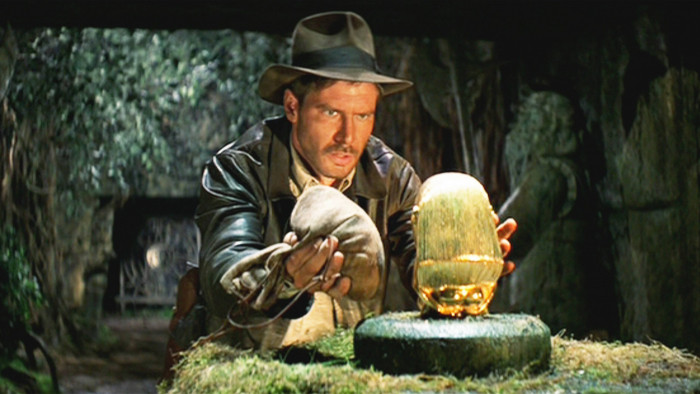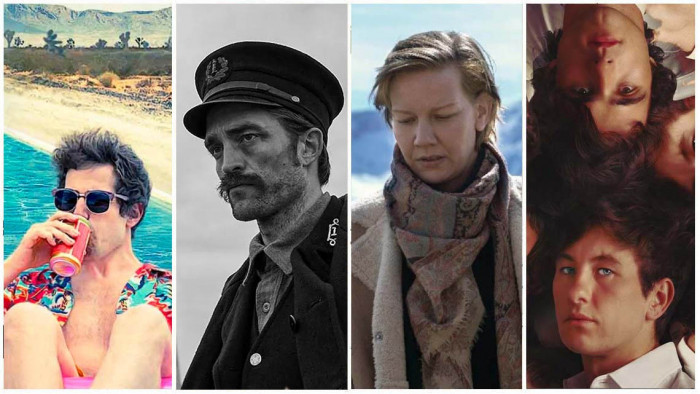Woody Allen, it could be argued, is one of the world’s most influential spectacle-wearers — if you discount John Lennon and Malcolm X, who were atypical. Allen invented a lovable, confused, insecure, neurotic romantic hero and thereby created a new type of comedy.
Where would Seinfeld, Curb Your Enthusiasm and almost every modern rom-com be without Woody Allen? David Schwimmer should send regular cheques. Simon Amstell really owes him lunch. Now, with Midnight In Paris, Allen has scored his biggest ever box-office hit… at the age of 75. ShortList caught him in a break from preparing a Broadway play and his next film. Still influential. Still wearing glasses…
Do you have any theories about why this film took off?
I don’t, but some people have said it’s because the people come out with a good feeling. And that’s as logical a reason as any. They’ve paid their money, they’ve understood the story, it’s pretty to look at, the performances are good, they’ve felt romantic, they’ve enjoyed themselves.
Are you tempted to try to work out what happened and replicate that in your next film?
I could make one next week that would be appreciated by a very limited amount of people, or by no people at all. These things are in the lap of the gods. I’ve never done sequels, or tried to work out why something was commercially successful and duplicate it. I don’t think I could even if I had an appetite for doing so. People try to do that all the time in the big studios and are forever losing a fortune.
Is the lead character Gil (played by Owen Wilson), who longs to live in Paris, partly you?
I first went to Paris in 1964. I had the attitude that if I wanted to, I was young enough to stay on there. And some of the people I was writing a movie with, Americans, made a choice to stay in Paris. I toyed with the idea but I was just not that bold or imaginative, so I came back to New York — a city I also love deeply. There were times when I felt that it would have been fun to stay in Paris, as Owen Wilson does in the film. To live there and spend your life as a Parisian — I can think of worse things.
Would you like to travel back in time and meet your heroes as he does in the film?
It only appeals if I could go back for lunch or dinner. But I would not like to go back for any length of time — an overnighter — because if I was struck in the middle of the night by an appendicitis attack, I would be stuck in the Twenties or the Thirties or the Belle Epoque and I would not like that very much. It would be great to visit the past the way one visits Chicago for the day. I could get up in the morning, have lunch and look at another table and see Matisse and Picasso, but then I would like to come home to New York and sleep in my own bed and have my own shower.
The famous artists and writers in the film are welcoming to Wilson’s character. Do you imagine they would be equally friendly to you?
I’m sure they were competitive with one another, like any generation of people. Artists are competitive, politicians are competitive, beautiful women compete, but I don’t think they would feel any competition from me, as a well-wisher, a voyeur who idolised them and supported their work. I think if they sensed any competition from me, then they’d be the same mean-spirited, back-biting people they probably were most of the time. I’m sure they had many drunken arguments and fist fights and enmities and jealousies among themselves.
You had an extraordinary cast, including Madame Sarkozy. How did you manage to cast her? We imagine she’s busy…
I had met the Sarkozys in Paris. My wife and I had breakfast with them and she was so beautiful and so charming that I said, “Why don’t you come and be in the movie? I know you’re busy and it could be strange for you. I’ll finish you in two days, it’s not like you’ll be filming for two months. It will be a fun experience and something you could handle easily.” And she said she would like to do it as it would be something she could show her grandchildren. And she was delightful. She did wardrobe and make-up tests just like any actress. Came in on time, hit her marks and did her work. There were a billion stories in the press that I had to do thousands of takes with her. All fabricated. And that her husband was irate and didn’t like her doing it. None of that was true. She was great. She managed the part easily. He came to the set once and loved watching her and said, “My God, my wife is a natural actress.” They were lovely people.
How about Wilson?
Owen Wilson is an actor I’ve admired for a long time, but I didn’t have a part he could play and, in fact, I didn’t think he could play this one. For ages I thought he was just too much of a Californian, too blond, too much of a beach type. I found I was wrong. He had a huge acting range and he knocked off the part, and I was wrong to judge him the way I did. He’s a bright, literate man in his private life.
You are famously disciplined. What’s a typical New York working day for you?
I get up and have breakfast and take my daughter to school, which is nearby. Then I’ll come back and get down on my bed with a pad and pencil and work. After a couple of hours I might take a break and do my treadmill and my exercises. Then I might have lunch and work some more, then I might practise my clarinet for an hour, then some more work. But it’s not disciplined. I enjoy working.
Your career began with stand-up. Looking back, how was that time?
Stand-up work is extremely exhilarating when you’re doing it. You’re out by yourself, you’re doing comic material and the audience is laughing at it, and it’s very enjoyable. But the life is hard. You go from one cabaret job to another, so you’re working six or seven days a week, two or three jobs a night, until 2am, and you go from Chicago to San Francisco to Boston… But if you do it on a selective basis, the way some comedians do now — they do a few concerts, they play a large hall for one night and they’re not relying on it for their living — that’s a pleasurable experience.
Are you ever tempted to try it again?
I do love it. I think sometimes I’m at a stage of life I could do that concert thing — I could announce that I was going to do it and get an audience. I wouldn’t have to go into cabarets week after week. The problem for me is that I would have to create a stand-up act and I would not be able to make a movie that year. That’s a long period of writing. I would have to stay at home and write and write. A stand-up act — a good one — is very concentrated. You’re up there for an hour or maybe more. It’s laugh, laugh, laugh — you can’t be up there just talking. There’s no exposition, there’s no music, no love scenes, no break. From the moment you say “Hello”, you’ve got to get people laughing and keep them laughing. So I’d be very tempted to go out on stage and do stand-up, because it’s something I can do.
Midnight In Paris is at cinemas nationwide from 7 October
(Image: Rex Features)
Latest
Related Reviews and Shortlists


The 10 best war movies of the 21st century









